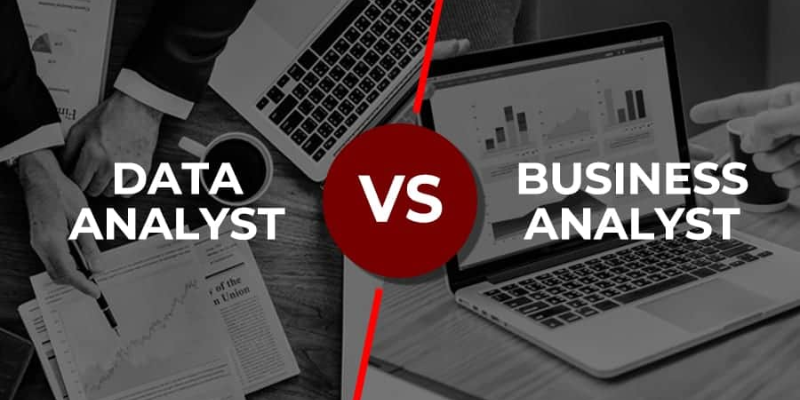In the structured data-driven decision-making environment, Data Analysts and Business Analysts stand out as independent but interconnected pillars. Understanding the subtle differences between these two professions is becoming increasingly important as organizations depend on data to shape plans and enhance operations. This blog seeks to uncover the distinct duties and contributions that differentiate Data Analysts from Business Analysts and highlight the specific roles and responsibilities required for each position.
Difference Between Business Analyst and Data Analyst
Business Analyst
- Being a business analyst may be a good fit if you appreciate understanding company processes, establishing needs, and optimizing operations.
- Corporate analysts in the MBA Business Analytics field usually use their strong communication and organizational skills to close the gap between insights based on data and strategic organizational goals.
Data Analyst
- Working as a data analyst might be a good fit if you are interested in statistics, data processing, and machine learning.
- Data analysts are typically more technically inclined and prosper at data-driven problem resolution.
Roles
Business Analyst
- A business analyst’s primary responsibility is understanding an organization’s business needs.
- They should have a strong understanding of business processes, industry knowledge, and subject competence.
- Business Analysts must be able to solve problems, think critically, and make decisions.
- Business Analysts can benefit from credentials such as Certified Business Analyst Professional (CBAP) and Project Management Professional (PMP).
Data analyst
- Data analysts must have a strong data handling, statistics, and visualization background.
- Understanding machine learning methods and tools is essential for constructing predictive models when pursuing an MBA in Business Analytics in Chennai.
- Data cleaning and analysis need proficiency in programming languages such as Python and R.
- Data analysts must be conversant with the data extraction, transformation, and loading (ETL) process.
- Certifications like Certified Data Analyst (CDA) or Google Data Analytics Professional Certificate might help a Data Analyst credentials.
Responsibilities
Data Analyst
- Data analysts gather, clean, and prepare data from various sources.
- They use statistical analysis and visualization to reveal insights.
- Data Analysts create prediction models to help people make decisions.
- They use reports, Data analysis, and presentations to share their data results.
Business Analyst
- Business Analysts are responsible for acquiring and documenting business requirements.
- They interact with stakeholders to establish project objectives and success criteria.
- Business Analysts conduct feasibility studies, cost-benefit evaluations, and risk assessments on suggested solutions.
- Business analysts regularly monitor and analyze the impact of deployed solutions on business operations.
The selection between a job as a Data Analyst and a Business Analyst is critical, based on personal talents, interests, and long-term goals. In today’s commercial context, both jobs are critical to organizational success. Aspiring professionals seeking admission to MBA Colleges in Chennai should carefully consider their talents, interests, and educational history before deciding on a career path that corresponds with their professional goals and the expectations of the Chennai business sector.

